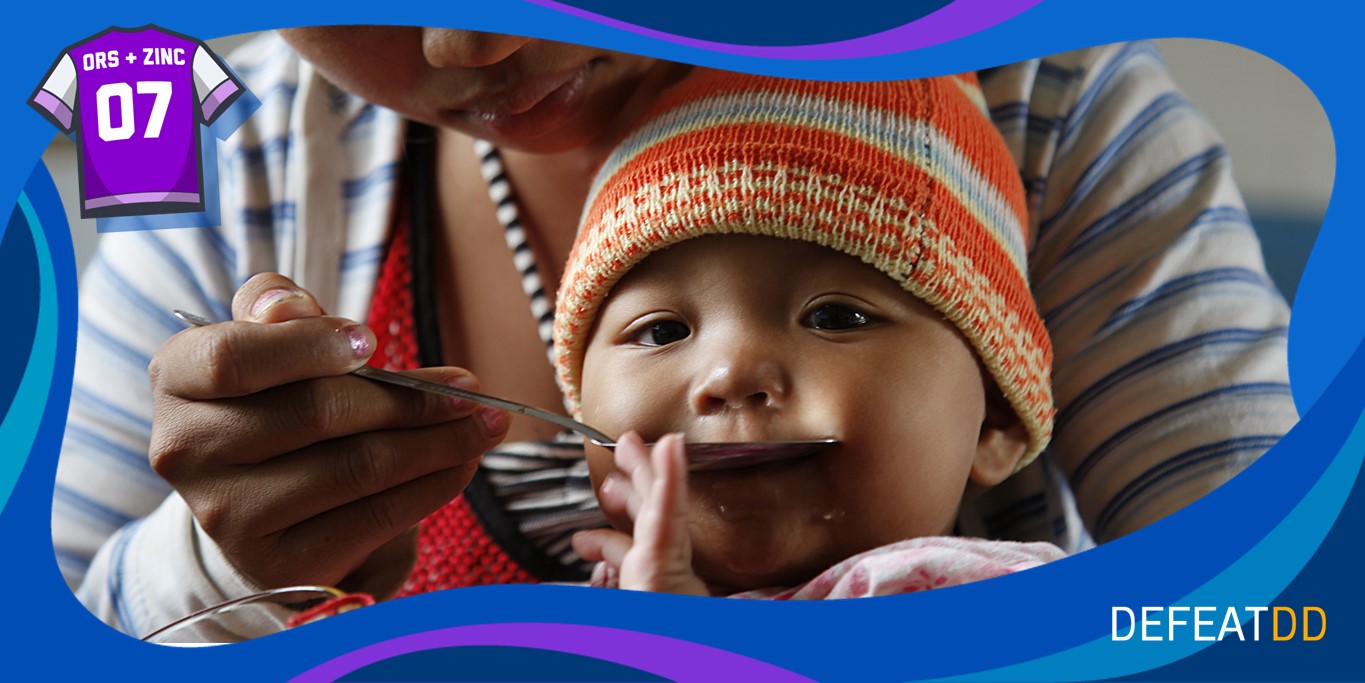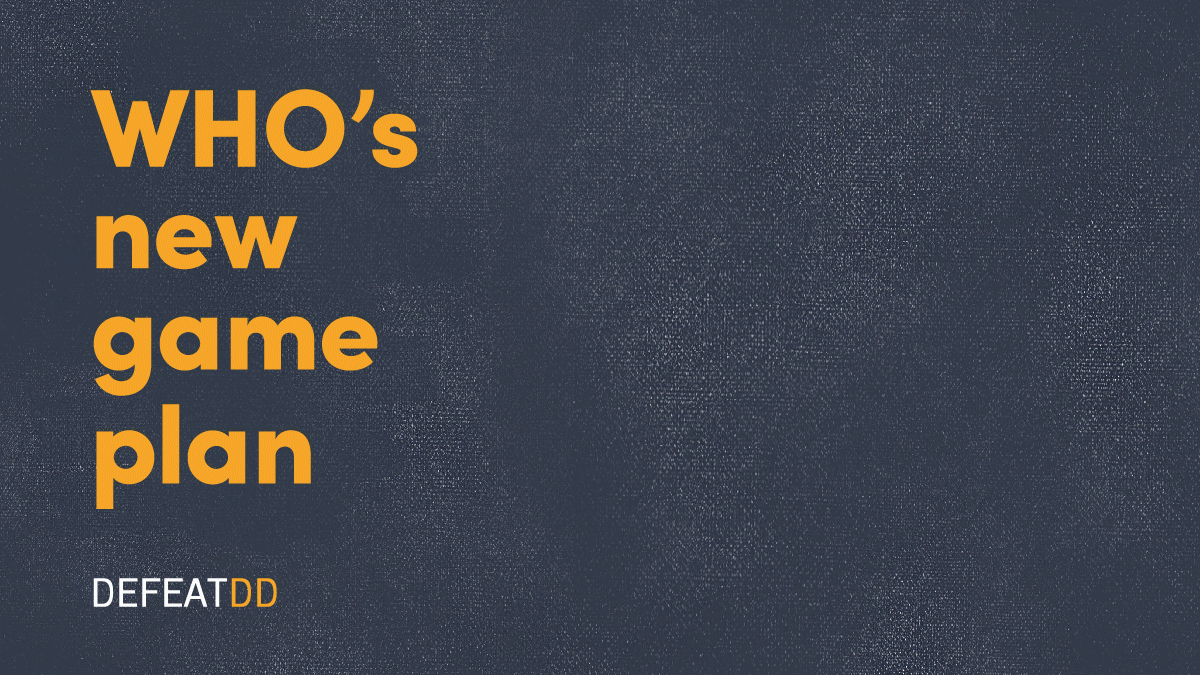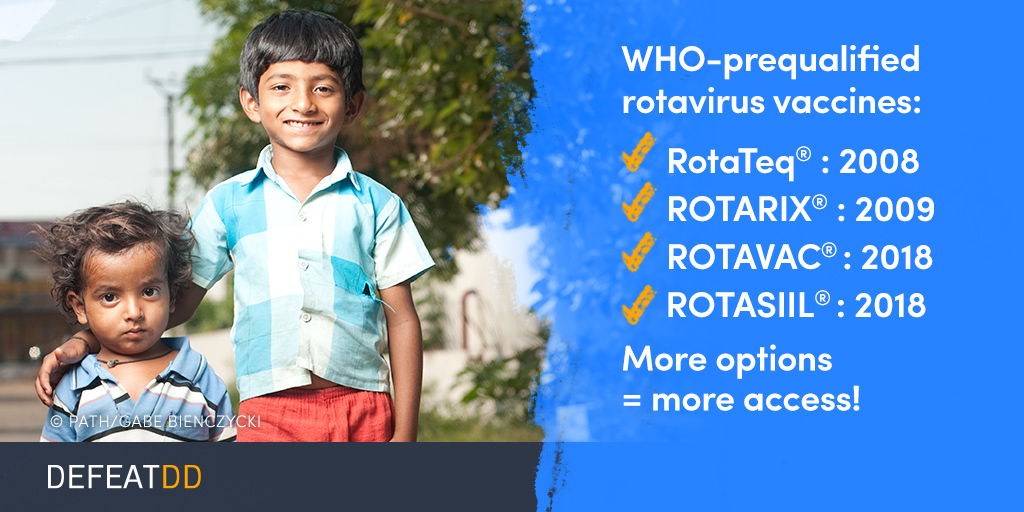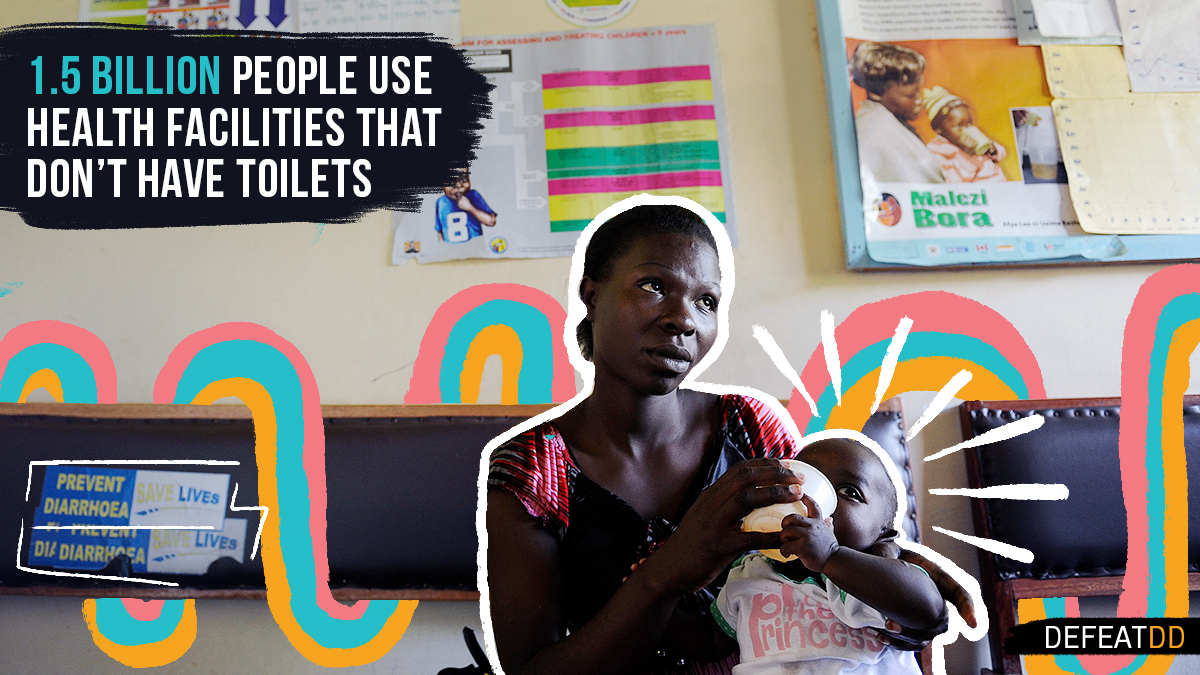
How does the World Health Organization improve global health? Three examples from DefeatDD

In 2019, the World Health Organization added co-packaged ORS and zinc to its Essential List of Medicines. This will improve availability, uptake, and affordability of these lifesaving diarrhea treatments.
UPDATE: The DefeatDD is heartened that as of November 2020, US President-elect Joe Biden signaled his intent to rejoin the World Health Organization when he takes office.
Our team at DefeatDD is saddened by COVID-19’s already devastating blow to lives and livelihoods, and we’re worried by how much worse families in poor countries will fare.
Now, further exacerbating a difficult situation, comes the US government’s halt to its funding toward the World Health Organization (WHO). As PATH said in a statement, “Solidarity amongst world leaders will be the key to minimizing this pandemic’s devastation.” Unfortunately, this lack of solidarity could have real consequences on health: in the end, the world’s most vulnerable will pay the price.
To truly overcome this outbreak and others like it, we need a global mechanism all countries can look to for best practices, guidance, and support. We need WHO, and WHO needs the US government’s buy-in: almost 20% of USG funding goes to vaccine-preventable diseases like rotavirus, which are sure to see an increase due to COVID-19’s interruption in routine immunization services.
In the stormy sea of this unprecedented global pandemic, WHO is an anchor that can help us weather the numerous other threats that will arise as a result. Any nation would be foolish to take its chances solo.
The role of an entity like WHO can feel nebulous to those not working in the field of public health. In fact, maybe you’ve found yourself wondering: What exactly does WHO do? Here are three examples of how WHO makes possible our work to elevate access to diarrhea prevention and treatment.
1. Developing evidence-based policies for country governments
In 2004, WHO recommended the use of two medicines, oral rehydration solution (ORS) and zinc, as the cornerstone treatment for diarrhea. [Read our blog about how another multilateral organization made ORS the lifesaving tool it is today.] This evidence-based policy informed national protocols for diarrhea treatment, providing health workers with guidance that has saved countless children’s lives.
In 2013, WHO and UNICEF set the gold standard for integration with the Global Action Plan for the Prevention and Control of Pneumonia and Diarrhoea (GAPPD), the first protocol that outlined how to tackle both leading child killers at the same time. It’s a key resource that continues to inform DefeatDD’s work today.
Just last year, PATH and several partners successfully petitioned WHO to add co-packaged ORS and zinc to its Essential List of Medicines (EML), to align with its technical guidance and best practices based on the experience of global health implementation groups. We knew that an updated EML would improve uptake and use of both medicines (zinc is rarely used, despite the recommendation) and make it more affordable, too.

WHO brings decades of technical experience to the table as a fellow member of the Global Task Force for Cholera Control, which seeks to advance progress against the ongoing cholera epidemics that have been devastating refugee camps and other crowded, impoverished settings long before COVID-19. The resources established and lessons learned from these outbreaks are important across many disease areas: “When it comes to cholera outbreaks, Ebola, TB and other diseases, the WHO is at the forefront of monitoring and surveillance,” says Lisa Bos, World Vision’s Director of Government relations, in a TIME Magazine interview.
2. Conducting technical reviews of new vaccines to facilitate increased access
Before a new vaccine is added to the menu of products that can be subsidized for poor countries, the World Health Organization reviews the vaccine clinical trial data on safety and efficacy. Vaccines require WHO’s stamp of approval, called prequalification, before they are procured and delivered by groups like UNICEF and Gavi, the Vaccine Alliance.

Laboratories and vaccine manufacturers are also subject to WHO’s prequalification process. An objective, rigorous, and standardized vetting process is non-negotiable for high-quality, population-wide health interventions.
3. Leading on health policy prioritization and data
When advocates meet with national policymakers to argue for specific health investments, they frequently ask for data points from WHO. That’s for good reason: WHO is an invaluable resource for national policymakers as they weigh competing health priorities and limited budgets. In an era where we are inundated with conflicting information, access to authoritative and reliable guidance from experts is more important than ever, as is the global lens that WHO embodies.

WHO convenings such as the World Health Assembly provide a forum for unprecedented opportunity to draw attention to underreported, yet urgent health threats.
In 2019, for example, WHO member states passed a World Health Assembly (WHA) Resolution on WASH in healthcare facilities. COVID-19 has animated the importance of WASH with a sense of immediacy, and fortunately, while we have a long way to go, we don’t have to start from scratch.
In 2018, WHO member states passed a WHA resolution on the Global Roadmap for Cholera Control. Later that year, 47 African countries adopted a regional framework to align with the Roadmap. Like the ORS and zinc co-pack, this is another example of how global priorities shape national plans that ultimately reach local communities.
Our team looks forward to continued partnership with WHO in the weeks, months, and years ahead.


